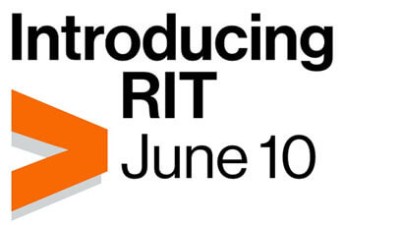Undergraduate International Student FAQs
- RIT/
- Admissions and Aid/
- International/
- Undergraduate International FAQs
Students whose native language is not English must submit results from the Test of English as a Foreign Language (TOEFL), PTE Academic or International English Language Testing System (IELTS). Students may self-report their scores in the following ways:
- On their application for admission
- Via email at admissions@rit.edu
- From your school/college counselor via mail or email
Admitted students will be required to submit their official scores once they choose to enroll at RIT.
All admitted students scoring in a conditional admission range will be tested by RIT's English Language Center upon arrival at RIT. The results of this testing will determine if English instruction for non-native speakers will be required before a student may begin academic courses. RIT also offers conditional admission where students can integrate English Language studies with their academic program.
If your scores fall below the minimum score for admission consideration, you may apply for English Language Center admission directly.
|
Test Type |
Minimum Score for Direct |
Score for Conditional |
| Internet Based TOEFL (iBT) |
79 |
78 or lower |
| PTE Academic |
58 |
57 or lower |
| IELTS |
6.5 |
6.0 or lower |
Note: When completing the information for score reports to be sent, please include RIT's institutional code of 2760 so that your scores arrive at RIT's Admissions Office.
TOEFL/PTE Academic/IELTS is not required for applicants (based on their citizenship and/or studying 2 years or more) from the following countries:
| Antigua |
Dominica |
Malawi | Tanzania |
| Australia |
Fiji |
New Zealand | Tobago |
| Bahamas |
Grand Cayman Islands | Nigeria |
Trinidad |
| Barbados |
Grenada | Papua New Guinea | Uganda |
| Barbuda |
Guyana | Sierra Leone |
United Kingdom |
| Belize |
Irish Republic | Singapore |
USA, except Puerto Rico |
| Bermuda |
Jamaica | St. Kitt & Nevis | Virgin Islands |
| Botswana |
Kenya |
St. Lucia | Zambia |
| Canada, except Quebec |
Lesotho |
St. Vincent & Grenadines | Zimbabwe |
| Commonwealth Caribbean |
Liberia |
Swaziland |
International scholarships will be awarded to qualified first-year and transfer applicants. First-year international applicants are encouraged to submit SAT or ACT results for review. Applicants to STEM programs who choose to submit ACT scores are recommended to include the ACT Science section. Merit-based scholarship awards are only offered upon admission to RIT.
Full tuition scholarships are not available. RIT offers very limited need-based funding.
Students may use scholarships awarded as part of the documentation of support. The total support, which may include the merit or need-based aid if applicable, must total at least $78,000 USD in order for RIT to issue the I-20 or DS-2019 forms necessary to apply for a student visa.
International students currently attending a U.S. school: Please work with your International Student Services representative or Designated School Official (DSO) to release your active SEVIS record to RIT’s main campus (School Code: BUF214F00033000). Once your DSO confirmed that the SEVIS transfer has been initiated, email admissions@rit.edu with your application ID number, SEVIS number, and the transfer release date. SEVIS transfer I-20s are processed on or after the release date.
Once we receive the SEVIS Transfer form, an acceptable Declaration of Financial Support and bank documentation, and you have sent RIT a non-refundable $500 enrollment deposit, your SEVIS record will be transferred from your previous school to RIT and an I-20 will be sent to you.
Canadian applicants should also follow the instructions above. However, Canadian applicants can apply for other forms of need-based financial aid (grants and work study) offered by RIT. It is not necessary for Canadian applicants to submit a Declaration of Financial Support with their initial application. Upon acceptance, a Financial Aid Application for Canadian Students will be sent to you. Once this is completed and returned to RIT, you will be considered for financial aid. Once your financial aid package has been offered, you will need to submit a copy of your passport and bank documentation showing adequate funding for the difference between the total cost of attendance for one year and your financial aid offer. Once this financial documentation has been provided, an I-20 will be issued to you.
Deaf and hard-of-hearing test takers do not need to take the listening and speaking sections for the TOEFL and IELTS. Scores from these sections will not be considered in the review of application materials because the listening/speaking components of the TOEFL and IELTS sections are not relevant for deaf and hard-of-hearing individuals.








